Uncategorized
-
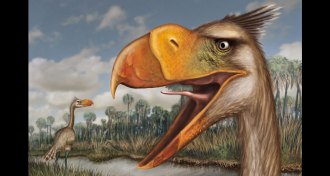 Paleontology
PaleontologyFossil reveals terror bird’s power
Bones of a new terror bird confirm the creatures used their beaks to hatchet their prey but also raise questions about what drove the birds extinct.
-
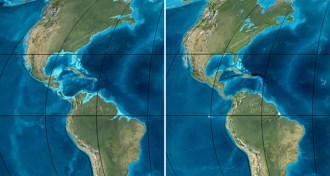 Earth
EarthMeeting of the Americas came early, study suggests
Volcanic crystals thought to have formed in Panama and found in an ancient Colombian streambed hint that North and South America may have met up roughly 10 million years earlier than once thought.
-
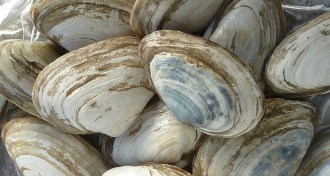 Genetics
GeneticsContagious cancer found in clams
A soft-shell clam disease is just the third example of a contagious cancer.
-
 Planetary Science
Planetary ScienceA modest Plutonian proposal
Flagstaff, Echidna, Spock. Naming conventions for the landscapes of Pluto and its moons are proposed ahead of the arrival of the New Horizons probe.
-
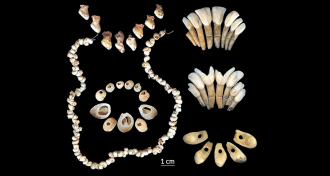 Anthropology
AnthropologyBeads suggest culture blocked farming in Northern Europe
Baltic hunter-gatherers blocked farming’s spread from south.
By Bruce Bower -
 Astronomy
AstronomyCyanides around young star signal complex organic chemistry
Abundances of cyanide compounds around a young star match those found in comets in our solar system.
-
 Animals
AnimalsDealing with droughts, museums going digital and more reader feedback
Readers share their experiences with dry weather in the U.S., discuss how humans mentally sort quantities and more.
-
 Science & Society
Science & SocietyOne anniversary to celebrate, one to contemplate
In this issue, both feature articles focus on anniversaries, though of two very different kinds.
By Eva Emerson -
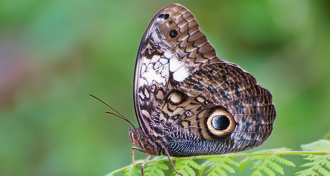 Life
LifeIt’s true: Butterfly spots can mimic scary eyes
Contrary to recent studies, the old notion that butterfly wing eyespots evoke predator eyes may not be so old-fashioned after all.
By Susan Milius -
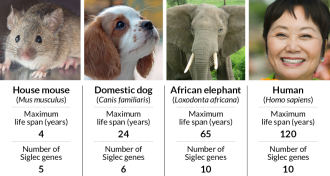 Genetics
GeneticsAnti-inflammation genes linked to longer lives
Inflammation-dampening genes fight oxidants and promote longer life spans.
-
 Health & Medicine
Health & MedicineMutation regions mapped on genes that cause breast and ovarian cancer
An analysis of mutated BRCA genes could someday be used for personalized medicine in the fight against breast and ovarian cancer.
By Nathan Seppa -
 Astronomy
AstronomyCelebrating 25 years of the Hubble Space Telescope
The Hubble Space Telescope has served for more than two decades as the sharpest eyes ever to peer into the universe.